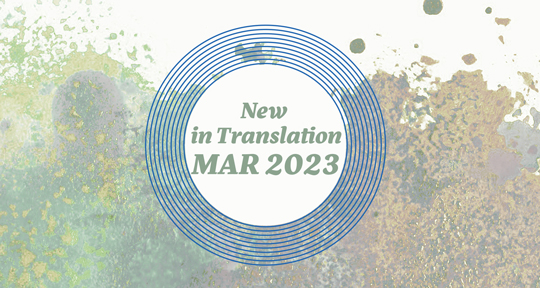Yiddish literature is marked by migration, yet it often finds itself deeply rooted in place—whether the place of its present or echoes of its past. Much of the Yiddish literature available in English translation centers around Eastern Europe and New York, but the geographical breadth of Yiddish speakers and writers stretches far beyond those points; as Yiddish speakers migrated beyond the language’s origins, New York was far from their only destination. In 2023 The Yiddish Book Center put out a call for submissions for new translations of Yiddish literature that would help to turn our gazes to all points south, exploring and drawing attention to some of the further locations of Yiddish-speaking diaspora. The protagonists of the translations collected here find themselves in the American South, Mexico, Chile, Argentina, and New Zealand—just a sampling of the many places Yiddish speakers landed—and each translation is in some way grounded in its setting.
Mina Smoler’s “Wandering,” translated by Joseph Reisberg, and Ryan Mendias’s translation of an excerpt from Peretz Hirschbein’s travelogue present temporary voyages into strange-to-them new places. Elisheva Rabinovitsh’s “The Reconciliation,” translated by Avi Blitz, reveals how different generations relate to a place where some seem far more comfortable than others. Yoske, the protagonist of Moyshe Rubenstein’s story “Mixed Blood,” translated by a trio of Avi Blitz, Deborah Hochberg, and Eric Lerman, falls comfortably into a life cut off from his past until it comes back to haunt him. And the three pieces set in Argentina—Berl Grynberg’s “Game of Life,” translated by Edith McCrea; a chapter from Mimi Pinzón’s The Courtyard without Windows, translated by Jonah Lubin; and my own translation of two poems by Yankev Flapan—portray communities and relationships that exist entirely in their present time and place. In each translation, authors and their characters explore their homes and encounter both new and familiar tensions, personal and societal.



